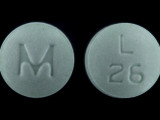The medication Lisinopril belongs to the angiotensin-converting enzyme or ACE inhibitors’ group used in improving survival after heart attacks, congestive heart failure, and hypertension (high blood pressure). It is also used to prevent retina (eyes) and renal (kidneys) complications from diabetes.
Like most cardiovascular medications, the Lisinopril price is on the higher end of the financial spectrum. Used in combination with other medication/treatment, Lisinopril helps control blood pressure levels from becoming too high and risks of heart failure but it does not cure these conditions.
How Lisinopril Works
Lisinopril works by reducing certain kinds of chemicals from tightening the blood vessels that results in a smooth blood flow to enable the heart to efficiently pump blood. Aside from congestive heart failure and hypertension, Lisinopril works as treatment for diabetic nephropathy and acute myocardial infarction. A lowered blood pressure means a reduction in the risk of developing congestive heart failure or CHF in which the heart is unable to pump sufficient amounts of blood for overall distribution in the body.
Lisinopril decreases symptoms of CHF such as shortness of breath, swelling, and fatigue. Taking Lisinopril once daily, but always at the same time, decreases the risk of death from a myocardial infarction or heart attack. This occurs when both blood and oxygen are blocked from going to the heart muscles for a long period; this part dies after a prolonged time of such blockage.
Short-Term Side Effects
Should these side effects occur when taking Lisinopril, they are mild and can generally be treated easily or don’t require treatment at all:
- Stomach pain
- Fatigue
- Chest pain
- Skin rashes
- Swelling of feet or hands
- Difficulty in swallowing
- Lightheadedness
- Dizziness
- Fainting
Heart palpitations, unexplained loss of weight, and pancreatitis would be rare but nevertheless also short term side effects that should be discussed with your physician.
Long-Term Side Effects
 Drop in the blood pressure: movement of the body from horizontal to vertical position augments a drop in the blood pressure such as standing up suddenly from either a lying down or sitting position.Chronic cough: while Lisinopril does a good job of lowering blood pressure levels, it could also block secretion breakdown in the lungs; these secretion build up in that area and cause coughing. Decrease in urinary output: this happens when Lisinopril is taken for a prolonged period of time. The urine also becomes cloudy and dark; sometimes, there is an inability to urinate. All of these conditions should be discussed with your doctor.
Drop in the blood pressure: movement of the body from horizontal to vertical position augments a drop in the blood pressure such as standing up suddenly from either a lying down or sitting position.Chronic cough: while Lisinopril does a good job of lowering blood pressure levels, it could also block secretion breakdown in the lungs; these secretion build up in that area and cause coughing. Decrease in urinary output: this happens when Lisinopril is taken for a prolonged period of time. The urine also becomes cloudy and dark; sometimes, there is an inability to urinate. All of these conditions should be discussed with your doctor.
Decrease in libido: reduction of libido and impotence in males are also considered long term side effects of Lisinopril. Yellowing of the whites of the eyes and skin: you may develop jaundice since Lisinopril has to be cleared by your liver. Ask your physician to check your liver functions periodically. Reduced immunity: Lisinopril may lower the levels of your white blood cells that fight off infections and lead to flu-like symptoms such as a sore throat, runny nose, and fever. People whose immune systems have been compromised should not be exposed to others who have the flu or colds while they are taking Lisinopril.
Share This